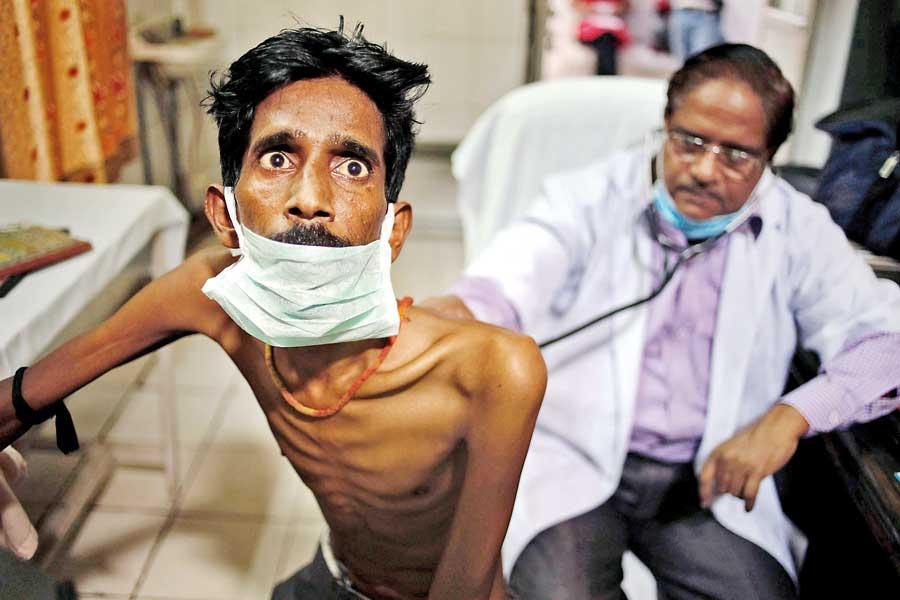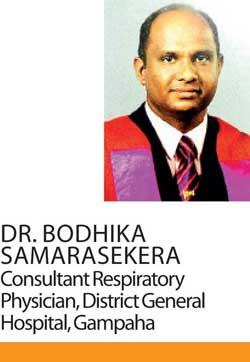22 Mar 2019 - {{hitsCtrl.values.hits}}

 Tuberculosis or TB, as it’s commonly known, is one of the major health problems faced by the developing world. Nearly one third of the global population, that is around two billion people, is estimated to be infected with the bacteria which cause TB, making them more susceptible to illness. Amongst these, it’s estimated that around 10 million humans develop TB illness annually. In 2015 alone, TB killed 1.8 million people, causing it to be ranked among the leading causes of death worldwide, right alongside HIV. The devastating effects of the disease have led to the WHO declaring a World TB Day, which falls on March 24th every year.
Tuberculosis or TB, as it’s commonly known, is one of the major health problems faced by the developing world. Nearly one third of the global population, that is around two billion people, is estimated to be infected with the bacteria which cause TB, making them more susceptible to illness. Amongst these, it’s estimated that around 10 million humans develop TB illness annually. In 2015 alone, TB killed 1.8 million people, causing it to be ranked among the leading causes of death worldwide, right alongside HIV. The devastating effects of the disease have led to the WHO declaring a World TB Day, which falls on March 24th every year.
Today in Health Capsule, we are consulting Dr. Bodhika Samarasekera, Consultant Respiratory Physician, District General Hospital, Gampaha and Treasurer of the Sri Lanka College of Pulmonologists, to raise awareness on the very current topic of TB amongst our readers.
About TB
Tuberculosis is an infectious disease caused by bacteria called Mycobacterium tuberculosis. History of TB is a long one, running back to the time of our ancestors many generations away. Even though TB is an ancient disease, the bacteria went undiscovered until 1882, at which time it was isolated by Robert Koch. Hence it is also called Koch’s disease. Tuberculosis commonly affects lungs, but can affect any other organ of the body excluding nails and hair.
Spread of TB
When a patient with infectious TB in Lungs coughs, sneezes or laughs bacteria are expelled into the air in the form of tiny droplets. When a healthy person inhales these droplets they too can become infected. Once infected, approximately 10% of people will develop the disease during their life time. People who are having low immunity due to various conditions like HIV, Diabetes, malignancy, malnutrition and are on immunosuppressive drugs are especially susceptible.
Symptoms
Cough more than two weeks, shortness of breath, chest pain and blood stained phlegm are common lung symptoms. In addition, patients might complain of constitutional symptoms like fever and night sweats, loss of appetite, loss of weight and failure to gain weight in the case of children and tiredness.
Symptoms of TB affecting elsewhere of the body other than lungs, called extra pulmonary tuberculosis, usually depend on the organ involved. Patients may present with symptoms related to the affected system. In addition they may also present with constitutional symptoms such as fever, night sweats, loss of appetite and loss of weight.

Diagnosis
If you have a persistent cough for more than 2 weeks you should undergo a simple sputum test for TB. Usually three samples of sputum (phlegm) need to be tested for this purpose. This can be arranged at any hospital with a microscopic centre.
It is important to give a good sputum (phlegm) sample rather than saliva. This can be achieved by rinsing your mouth with water followed by inhaling deeply 2-3 times with mouth open. Then you need to cough out deeply from the chest and spit out sputum into the container closer to the mouth and close the container quickly as possible. In addition, patients with symptoms suggestive of TB are usually asked to undergo chest X-ray.There are other tests like skin test, tissue biopsy, sputum culture and genetic tests which will be ordered in complex situations.
Tb is completely curable!
Tuberculosis can be fully cured by 6 months of treatment. It is very important to take the medicine as recommended to prevent complications of the disease which can be fatal. In addition, by completing the course of treatment you can prevent your loved ones being affected and reduce the transmission of the disease in the community. Once a patient is diagnosed as having TB, all his close contacts will be screened to exclude active TB and currently all children less than 5 years will be given prophylaxis treatment to prevent developing of the disease.
Poor compliance to treatment may lead to relapsing of the disease and drug resistance. This means that if you did not complete the course of treatment, not only will you be increasing your chances of getting the disease again; TB may come in a fiercer, more resistant form, not responding to conventional drugs. Multi drug resistance is an emerging problem worldwide, which needs longer duration of more intense treatment.

Eliminating stigma
There is much social stigma attached to TB since the old times, but time has come to end the stigma of TB by being better informed. Many think TB occurs only in poor socio economic class. However people from any social class can be affected by TB. Even kings in England including the great king Henry the seventh died due to TB.
Situation in Sri Lanka
In Sri Lanka about 9,500 to 10,000 new tuberculosis cases are found every year. The highest number of cases is reported from Colombo and Gampaha districts. Since TB is a curable disease it’s our duty to rally around the World Health Organization to acheive their target of END TB in 2030.
TB Walk
According to the statics in Sri Lanka about 4,000 patients with TB are not seeking medical advice every year. It is very important to increase public awareness in order to reduce social stigmata of the disease. Hence, Sri Lanka College of Pulmonologists, along with other health professionals, media and community leaders has organized many awareness programs around the country in celebration of this year’s World TB Day. ‘It’s time to know your TB status for a TB free Sri Lanka’ is chosen as this year’s theme. One such activity, ‘TB walk’ organized by the college of pulmonologists, with the intention of raising awareness on Tuberculosis was concluded successfully on March 21 at the Gampaha town with the participation of many healthcare personals as well as the general public.
Our duty
There are many patients who have slipped through the gaps in the healthcare system, currently living with TB, and unknowingly spreading the disease amongst others. It should be our goal to eliminate the stigma around the topic of tuberculosis and to bring these missed patients into the healthcare system, providing them with proper treatment, in order to truly put an end to TB by year 2030.
22 Dec 2024 55 minute ago
22 Dec 2024 2 hours ago
22 Dec 2024 3 hours ago
22 Dec 2024 5 hours ago
22 Dec 2024 5 hours ago